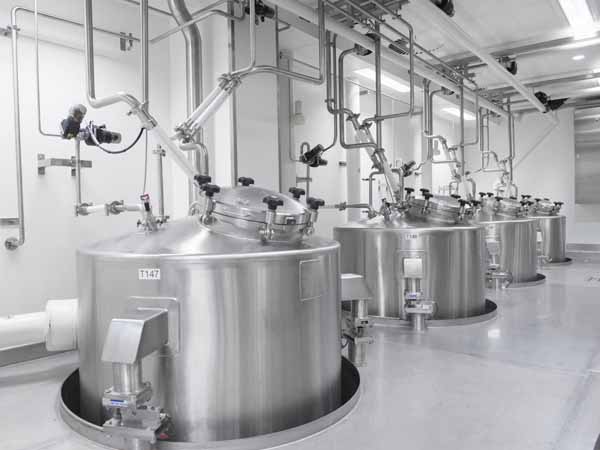
Phone
+86-731-82250427
Address
25th floor, C3 Building, Wanda Plaza, Kaifu District, Changsha, Hunan Province, China.
 Jun 17 2024
Jun 17 2024Stainless Steel: The Foundation of Modern Medical Equipment
In the medical and pharmaceutical industries, precision, safety, and hygiene are paramount. Stainless steel, particularly grades like 304 and 316L grades, has become indispensable in these sectors due to its exceptional properties. Its use ranges from surgical instruments to pharmaceutical processing equipment, showcasing its versatility and reliability. The journey of stainless steel in these industries highlights its role as a foundation of modern medical technology and pharmaceutical innovation.
Stainless steel’s resistance to corrosion ensures that medical instruments and equipment remain free from rust and degradation, which is critical for maintaining sterility. Surgical instruments made from stainless steel can be sterilized repeatedly without losing their sharpness or integrity, making them ideal for a wide range of procedures. From scalpels and forceps to more complex devices like endoscopic instruments, stainless steel provides the reliability and durability that medical professionals depend on.

Enhancing Safety in Pharmaceutical Production
In pharmaceutical manufacturing, maintaining a contaminant-free environment is crucial. Stainless steel’s non-porous surface resists bacterial growth, ensuring that pharmaceutical products are produced in the most sterile conditions possible. Tanks, piping, and processing equipment made from stainless steel are easy to clean and sanitize, minimizing the risk of contamination and ensuring compliance with stringent industry standards.
Moreover, the alloy’s ability to withstand high temperatures and harsh chemicals used in cleaning processes further underscores its suitability for pharmaceutical applications. This robustness not only extends the life of the equipment but also ensures that it can handle the rigorous demands of continuous production cycles. As a result, pharmaceutical companies can maintain high productivity levels while adhering to safety and quality standards.

The Role of Stainless Steel in Medical Implants
Beyond instruments and equipment, stainless steel is also pivotal in the development of medical implants. Its biocompatibility makes it suitable for use in the human body, where it can remain without causing adverse reactions. Stainless steel is often used in orthopedic implants, such as pins, screws, and plates, which are essential for bone repair and stabilization.
The strength and flexibility of stainless steel allow for implants that can withstand the mechanical stresses of the human body while promoting healing and recovery. Innovations in metallurgy have further improved the performance of stainless steel implants, enhancing their integration with biological tissues and reducing the likelihood of complications. This synergy between material science and medical engineering continues to drive advancements in patient care.
Advancing Medical Technology with Stainless Steel
Stainless steel’s role in advancing medical technology cannot be overstated. In diagnostic equipment, for instance, stainless steel is used in MRI machines, CT scanners, and other imaging devices due to its non-magnetic properties and durability. These machines require materials that can endure intense operational environments while providing precise and reliable results, and stainless steel fits the bill perfectly.
Additionally, stainless steel’s aesthetic qualities, such as its smooth finish and resistance to staining, contribute to its widespread use in medical environments. From hospital furniture to sanitary fittings, stainless steel not only meets functional requirements but also enhances the overall hygiene and appearance of healthcare facilities.

Sustainability and Future Innovations
The sustainability of stainless steel adds another layer of benefit to its use in the medical and pharmaceutical industries. Stainless steel is 100% recyclable, which aligns with the growing emphasis on sustainability and environmental responsibility in these sectors. The recycling process does not compromise its quality, ensuring that recycled stainless steel retains the same properties as the original material.
Looking forward, continuous research and development in stainless steel alloys promise further enhancements in its performance. Innovations aimed at improving its antibacterial properties, reducing weight without compromising strength, and enhancing its biocompatibility are on the horizon. These advancements will likely expand the applications of stainless steel even further, solidifying its role as a cornerstone of safety and innovation in the medical and pharmaceutical industries.
In conclusion, stainless steel's unparalleled properties make it an essential material in the medical and pharmaceutical fields. Its role in ensuring safety, enhancing performance, and supporting sustainability underscores its importance. As technology and material science continue to evolve, stainless steel will undoubtedly remain at the forefront of advancements in these critical industries, driving progress and improving lives.
